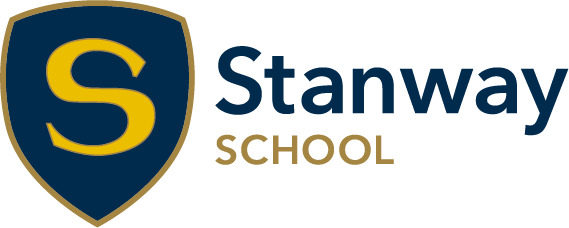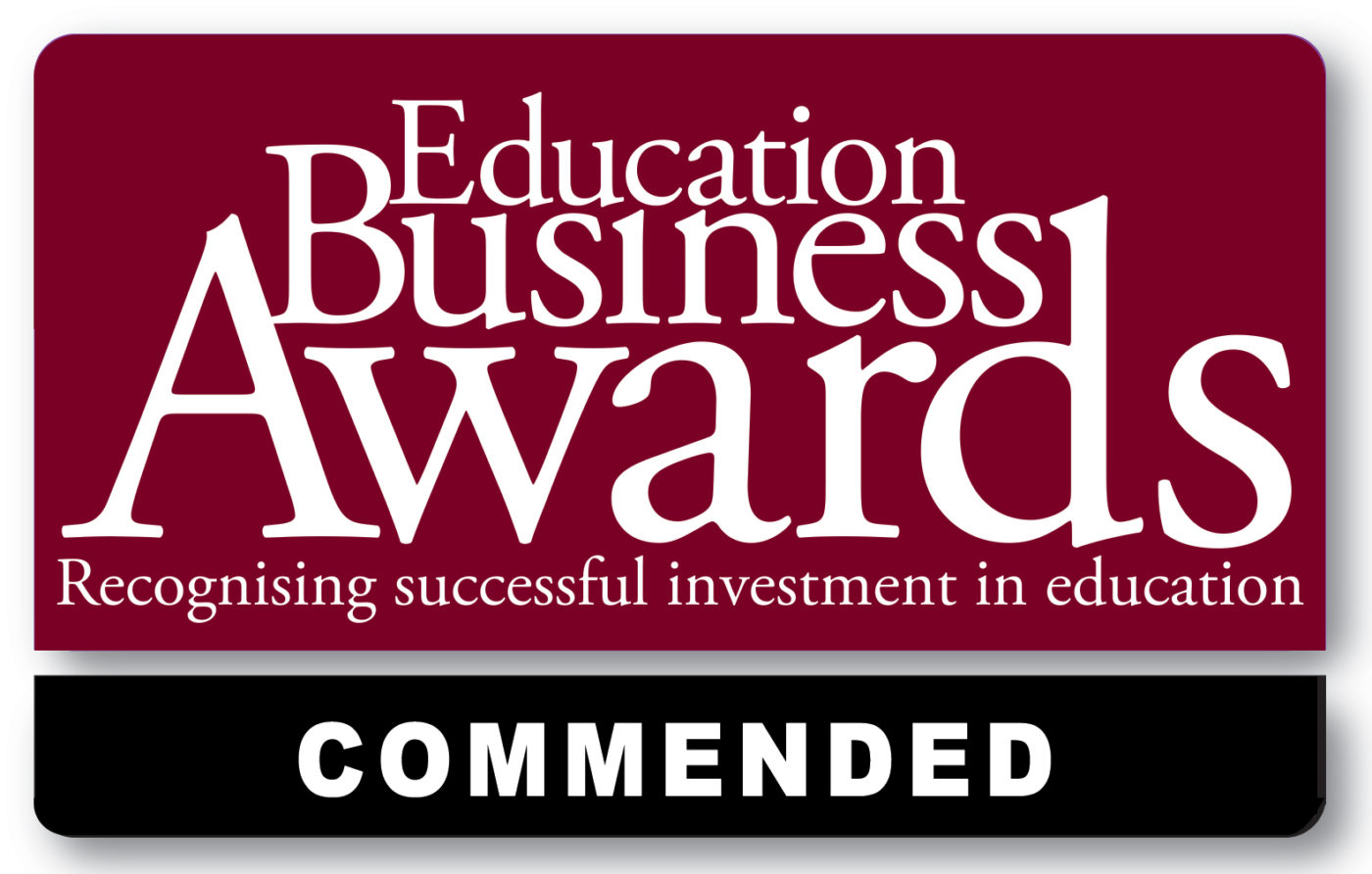SEND
The Stanway School SEND Information Report
The Stanway School is committed to offering an inclusive curriculum to ensure the best possible progress for all of our students whatever their needs or abilities. In addition we develop a culture where everyone’s contribution and successes are celebrated and where students are prepared for life in an ever changing society.
We are committed to providing all students with full access to a common, balanced and differentiated curriculum regardless of ability or need. As part of this commitment, the Learning Support Team aims to accurately identify, assess students with special educational needs and provide support strategies to enable staff to meet the needs of these students across the curriculum.
The Stanway School is committed to narrowing the attainment gap between SEND and non-SEND students. This may include targeted after school interventions, short-term intervention learning or other learning interventions developed on an individual needs basis.
SENCO: Lizzie Allen
Our Governor with responsibility for SEND is: Claire Wheeler
The Learning Support Department and SENCO can be contacted via the main school telephone number (01206 575488) and then asking for the SEN department.
The arrangements for consulting parents of pupils with special educational needs.
Students and parents are at the heart of decision making ensuring high quality individual support carefully planned around the specific needs of the student. We put a greater emphasis on understanding and addressing students’ wider needs, resulting in a more personalised approach.
- We believe in working in partnership with parents.
- We will appoint a member of staff to the role of keyworker to liaise and support you and your child whilst attending The Stanway School.
- The SENCO oversees all support and progress of any child requiring additional SEND support across the school.
- The class teacher will differentiate and personalise work to meet the needs of the child and ensure progress in being made. You will have chance to meet your child’s class teacher during parent evening.
- Student progress will be reviewed termly by the Keyworker / SENCO in collaboration with parents and students.
- Meetings to agree transition arrangements and support
The arrangements for consulting students with special educational needs.
- Students will be fully involved when compiling their school passport (profile).
- Students will be involved in reviewing their progress, targets and support strategies in place. Students will actively contribute to agreeing learning outcomes.
- The appointed keyworker and pastoral team will support your child in school
- Student Surveys
Identification of students with SEN
Children are identified as having SEND when they have a significantly greater difficulty in learning than the majority of children the same age or have a disability which prevents or hinders them from making use of education facilities of a kind generally provided for children of the same age in schools within the area of the Local Authority (SEND Regulations 2014).
Students at The Stanway School have a range of difficulties including Communication and Interaction; Cognition and Learning; Social, Emotional and Mental Health difficulties and Sensory or Physical difficulties.
The Stanway School identify students as having a SEND need through a variety of ways which may include some or all of the following:
- Liaison with previous school
- Child performing below age related expected attainment / progress
- Concerns raised by parent
- Concerns raised by teacher / pastoral team
- Liaison with external agencies
- Health diagnosis
- SENCO / Senior LSA to observe pupil in subject area and suggested strategies then implemented by class teacher and reviewed after next assessment date.
Our class teachers, Heads of Department and Heads of House closely monitor the progress and attainment of all students, including those who have or may have SEND. The continuous monitoring of students during their time at The Stanway School will further identify pupils with a special educational need. This identification may come from tutors, subject teachers, support colleagues, Heads of House, outside agencies, parents/carers or the pupils themselves.
How to raise a concern
- Talk to us – contact your child’s class teacher, pastoral team or SENCO
- If you feel you child may have special educational needs or a disability speak to your child’s teachers in the first instance.
How we create an individual SEND plan
The aim of our provision is to identify and assess the SEND and to plan the provision needed for each young person to achieve his or her best at The Stanway School.
Some young people with SEND may need extra support to achieve their learning potential. If this is the case then this is what we will do. We will arrange a meeting with the young person and their parents to talk about what is needed to put together a Stanway School ‘One Plan’. Before the plan can be drawn up we will need to gather information that may include:
- The young person’s views and what he or she wants to achieve on their learning journey through The Stanway School
- The views of the parents and what they would like to see as an outcome from their child’s time at The Stanway School
- A school based learning assessment.
- Current and expected levels of attainment / progress.
We will meet again and look at all this information and then, together, a ‘One Plan’ will be drawn up. The One Plan will include outcomes, so everyone at the meeting will have something to do to help the young person on their learning journey. We will set a review date in the meeting. This will give us time to work together to achieve the agreed outcomes.
Some young people with SEND may need support from professionals outside of the school setting to achieve a successful learning journey. If this is the case then those views will be considered in drawing up a Stanway School One Plan. This could include:
- Parents seeking medical advice about the young person.
- School requesting Educational Psychologist involvement with the young person.
This will mean there may be more people at the planning meeting, but everybody will have something to do to help the young person be successful on their learning journey.
Using One Plans we are able to develop Student Passports to help families who have asked for our help to support their child because he or she is failing to make good learning progress. There are many reasons why this may be happening and we are able to offer advice or support to the family depending on their needs. This has been very successful.
Graduated Response
The Stanway School utilises the Graduated Response which is used to support the ‘One-Plan’ environment. The graduated response is a process where all provision and intervention that are used for a child with SEND follows an Assess, Plan, Do and Review cycle. This ensures appropriate early intervention targeted at student outcomes which is reviewed rigorously and regularly to ensure maximum impact.
The graduated response recognises that all children/young people learn in different ways and can have different types and levels of special educational needs. The graduated response means that step by step more support and expertise can be brought in to help the school support the difficulties a child or young person may be experiencing.
Parents/carers will be kept informed by the school of any extra or different help that their child is receiving due to their special educational needs. This extra or different help can be provided through our school based category of SEND Support or an EHCP (Education, Health and Care Plan) depending on the severity of the child/young person’s level of need.
The graduated response to special educational needs does not imply that interventions are a set of hurdles to be crossed before a request for an EHCP can be made. The interventions are part of a cycle of planning, action and review within The Stanway School to enable all children/young people at our school to achieve
Assessment and provisions for student with SEND
We use data to accurately track student progress. Your child will be set challenging targets. Our challenge is to support your child in attaining the targets.
Children who are not making the expected progress in school are picked up at review meetings, departmental meetings and Senior Leadership meetings. In these meetings a discussion takes place concerning why individual children are experiencing difficulty and what further support can be given to aid their progression.
Progress is discussed at review meeting with parents and comments are made against each target to show what progress the child has made. If the child has not met the target, the reasons for this will be discussed, then the target may be adapted into smaller steps or a different approach may be tried to ensure the child does make progress.
Our graduated approach (Assess, Plan, Do and Review) and effective provision mapping aims to ensure students have timely and appropriate interventions match to their need. Progress is then reviewed through rigorous tracking and monitoring. We track progress by:
- Reviewing progress including interventions after each review cycle (SENCO)
- Reading and spelling ages are assessed yearly
- Round Robins
- LSA notes after lessons
Progress is discussed with parents and pupils at review meetings. To support progress tracking we may utilise:
- Start and end point assessments, LSA Feedback Sheets, External reports, Pupil Feedback, Parental Feedback, Reporting Cycle and Review Meetings and teacher feedback.
All students, including those with SEND, are assessed on a regular basis, in accordance with the schools Assessment Policy. Additionally, parents evenings are held once a year when there is an opportunity to discuss progress, attainment and next steps. The school has a Quality Assurance process that assesses the effectiveness of Teaching and Learning for all students, including those with SEND and the outcomes of these evaluations are used to create and implement development plans for all aspects of school life. These are regularly reviewed through regular evaluation. Additionally progress and attainment data for students is analysed for effectiveness and value for money.
The table below shows an example of the evidence based provisions / interventions are available at The Stanway School for each stage of the ‘graduated approach’ and against each category of need. It also shows examples of external provision. Additional support maybe triggered when no progress is being made. For example, if a student is not making progress through Wave 1 provisions, then they may move onto a Wave 2 provision and so on.
Pastoral Support
The pastoral team comprises of a Head of House and an Assistant Head of House. They support all students in the school with pastoral issues whilst monitoring academic achievement and attendance. The school and pastoral team take bullying incidents very seriously – for more information please view our bullying policy.
The pastoral team have access to a number of internal strategies that may be utilised for students including SEND students and those needing additional support for emotional and social development. The pastoral team also have access to a number of external support organisations that aim to support students with their behaviour and emotional and social development.
For serious cases the Child Protection procedures are followed.
The SLT link for pastoral is: Chris Johnson
Below outlines the pastoral support available at the school including outside agencies that we work with.
Links with outside agencies
The Stanway School works in a collaborative partnership with many different agencies. This means that a supportive plan can be developed to meet your child’s needs both in and out of school. We hold regular meetings to monitor the plan and make changes, when necessary, to the plan. In addition to the SEND department the Pastoral team have access to support from a number of outside agencies.
Please view the Essex ‘Local Offer’ for additional services offered by the LEA. This can be found on the essex.gov website – http://www.essexlocaloffer.org.uk/
How the school’s resources are allocated and matched to children’s SEND needs.
- We ensure that all children who have Special Educational needs are met to the best of the school’s ability with the funds available.
- We have a team of LSAs who are funded from the SEN budget and deliver programmes designed to meet groups of children’s needs.
- The budget is allocated on a needs basis. The Children who have the most complex needs are given the most support often involving an LSA.
How the decision is made about what type and how much support my child will receive.
- The SENCO in collaboration with the class teacher and pastoral team will discuss the child’s needs and what support would be appropriate.
- Different children will require different levels of support in order to bridge the gap to achieve age expected levels.
- This will be through on-going discussions with parents
- The Pastoral Team regularly review progress as well and implement interventions whether or not the student is on the SEN register or has an EHCP.
How we know if it’s making an impact.
- By reviewing children’s targets on their ‘One Plan’ and ensuring they are being met
- The child is making progress academically against national/age expected levels.
- Verbal feedback from the teacher, parent and pupil.
- Children may move off of the SEND register when they have ‘caught up’ or made sufficient progress.
Specialist Service and Experience
- The SENCO is fully qualified and accredited
- As a school we work closely with any external agencies that we feel are relevant to individual children’s needs within our school including: – Behaviour Intervention; Health including – GPs, school nurse, clinical psychologist, paediatricians, speech & language therapists; occupational therapists; social services including – social workers and Educational Psychologists.
- All LSAs and teaching staff have had training on a range of SEND needs. Training and updates are provided as required.
- We have Senior LSAs with specific training and experience in Literacy & Numeracy.
Fire procedures for some SEND Students
Fire buddies are allocated to some SEN students and staff. This means that the buddy carries a timetable with him or her so that should there be a fire alarm then they go immediately to the room where their SEND buddy is waiting and escort them to designated meeting points. These students will have a Personal Emergency Evacuation Plan (PEEP)
Fire buddies, as a result of a risk assessment, may be allocated temporarily to young people because of a temporary medical condition. They too will have a timetable and will follow the evacuation procedures as detailed in the risk assessment.
Medical
Please view the schools medical policy for more information on this area.
How your child will be included in activities outside the classroom and during trips.
All children are included in all parts of the school curriculum and we aim for all children to be included on school trips. We will provide the necessary support to ensure that this is successful.
A risk assessment is carried out prior to any off site activity to ensure everyone’s health & safety will not be compromised. In the unlikely event that it is considered unsafe for a child to take part in an activity, then alternative activities which will cover the same curriculum areas will be provided in school.
Accessibility around the school
The school site is wheelchair accessible with disabled toilets. The school has lift access, ramps and all doors can be opened automatically. Additional support could include:
- iPads (visual)
- Modified furniture
- Mobility Training
- Access to specialist teacher input
- Coloured overlays
- Access to laptop & tablet technology
- Specialist consideration for examinations
How the school will prepare and support your child when joining the school and transferring to a new school.
We encourage all new children to visit the school prior to starting. We run taster days in collaboration with our feeder Primary Schools, allowing students to spend a day in the school and meet teachers. We visit SEND students in their current school, and if appropriate obtain comprehensive feedback on their development including strategies currently in place.
When a student is transferring from The Stanway School into further education (6th Form College / Institute) we meet with the Transition Pathways Service and liaise closely with further education providers and provide information as requested.
We liaise closely with staff when receiving and transferring children to different schools ensuring all relevant paperwork is passed on and all needs are discussed and understood.
Evaluation of SEND Practice
The effectiveness of the policy will be evaluated in the following ways:
- The level of progress individual children make across a key stage.
- By developments in teachers practice / awareness of special needs and how to deal with them.
- The extent to which modification to curriculum/teaching strategies for individual students have been incorporated into normal class practice.
- The extent to which the general curriculum has been developed in response to meeting the needs, interests or aptitudes of students.
This will be monitored by the SENCO through the school’s self-evaluation process.
The SENCO will prepare an Annual Report to the school’s Governing Body.
The Governing Body will:
- ensure that the necessary provision is made for any pupil who has special educational needs;
- ensure that, where the school has been informed by the LA that a pupil has special educational needs, those needs are made known to all who are likely to teach them;
- ensure that teachers in the school are aware of the importance of identifying, and providing for, those students who have special educational needs;
- consult with the LA and the governing bodies of other schools, when it seems to be necessary or desirable in the interests of co-ordinated special educational provision in the areas as a whole;
- ensure that a pupil with special educational needs has equal access to activities of the school together with students who do not have special educational needs, so far as is reasonable practical and compatible with the child receiving the special educational provision their learning needs call for and the efficient education of the students with whom they are educated and the efficient use of resources;
- Report to parents on the implementation of the school’s policy for students with special educational needs.
The Governing Body will ensure that:
- the SEND policy is regularly monitored, evaluated and reviewed;
- the effectiveness of the school’s work on behalf of children with special educational needs are considered and reported on at least an annual basis;
- In light of the above consider whether the policy needs amending.
Complaints procedure
The majority of concerns from parents, carers and others are handled under the following general procedures.
The procedure is divided into four stages;
Stage 1 A complaint made in person, by telephone or in writing.
Stage 2 Formal complaint made to the Headteacher
Stage 3 Investigation by the Chair of Governors (within 20 days)
Stage 4 Complaints Appeal Panel (within 20 days)
How each of these stages operates is explained in more detail in the school’s Complaints Policy.
Useful Contacts
Parent Partnership – 01245 436036
Essex Local Education Authority (Education) – 0845 603 2200
Useful Website Links
Essex Local Offer: http://www.essexlocaloffer.org.uk/
Young Minds: http://www.youngminds.org.uk/
Autism Concern: http://www.autismconcern.org/
Emotional Wellbeing and Mental Health Service: http://www.nelft.nhs.uk/services-ewmhs







